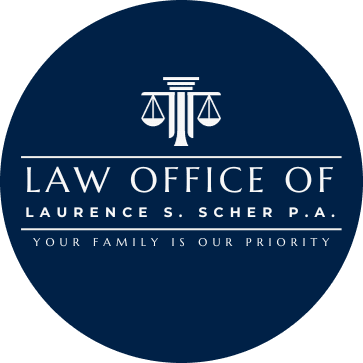
3 Common Myths About the Marchman Act Debunked

Posted on September 12th, 2024.
If you have ever faced the heart-wrenching ordeal of witnessing a loved one spiral into the depths of substance abuse, you know how desperate and helpless one can feel. It's a complex and challenging situation, often clouded by myths and misconceptions.
The Florida Marchman Act is a pivotal tool that many families have at their disposal, offering a way to secure the necessary intervention and treatment for individuals unable to take that step themselves.
It’s an invaluable resource, yet it’s often misunderstood, leading to hesitation and missed opportunities for life-saving assistance.
If you’re a parent or guardian of a young person battling substance abuse, realizing the full extent of the Marchman Act’s applicability could provide the much-needed clarity and urgency to take action, ensuring your loved one gets the treatment they urgently require.
What is the Florida Marchman Act?
The Florida Marchman Act is a notable piece of legislation aimed at addressing the needs of those struggling with substance abuse and mental health issues. First enacted in 1993, this law allows for the voluntary or involuntary assessment, stabilization, and treatment of individuals who are impaired due to substance abuse.
The Act is particularly significant for individuals who may not recognize their need for treatment due to their impaired judgment, providing a legal framework for families and loved ones to intervene. It targets individuals who have lost control over their substance use and are endangering themselves or others as a result. Therefore, it serves as a critical tool in Florida’s legal system for addressing severe cases of substance dependency.
The purpose of the Florida Marchman Act is to ensure the well-being of those unable to make rational decisions regarding their health due to the severe nature of their addiction. By offering a legal pathway to compel treatment, it aims to reduce the harmful impacts of substance abuse not only on the afflicted individual but also on their families and communities.
For a person to qualify under the Marchman Act:
- They must have lost self-control due to substance abuse
- Pose a real threat to themselves or others.
The evaluation starts with a petition filed by a family member, three adults, or an accredited service provider, leading to an objective assessment. This isn’t a blanket solution for all substance abuse issues; rather, it's designed for severe cases requiring immediate and intensive intervention.
Myth 1: The Marchman Act Leads to a Permanent Record
Many people are under the impression that undergoing treatment under the Act will leave a permanent mark on their legal history. While it’s understandable to worry about possible lasting effects, the reality is far different. The Act's primary function is to provide necessary help to individuals struggling with debilitating addiction issues rather than penalizing them.
It is important to clarify that the Marchman Act does not result in a criminal record; the treatment and interventions are entirely confidential. On a related note, the proceedings under this Act are considered civil, not criminal. Therefore, if you’re wondering, “Does the Marchman Act stay on your record?”—the answer is no. The law prioritizes rehabilitation and recovery over punishment.
The confidentiality protections built into the Marchman Act are robust. The Act ensures that any records related to the assessment, stabilization, and treatment of an individual are kept private. These records are protected under federal and state laws, specifically designed to safeguard personal health information. This means that employers, schools, and even licensing agencies will not have access to these records without your explicit permission. And while the court involvement may seem intimidating, judicial records tied to the Marchman Act typically remain confidential, ensuring your privacy remains intact.
Hence, the myth that the Marchman Act could tarnish your long-term opportunities is unfounded. Substance abuse treatment under this legislation aims to promote recovery and reintegration into society without lasting stigma.
Myth 2: The Marchman Act Only Applies to Adults
 Many believe that the Marchman Act is solely for adults, overlooking its applicability to minors. The truth is the Marchman Act can indeed be invoked for minors struggling with substance abuse. This significant aspect ensures that young individuals who are yet to reach adulthood can also receive the necessary intervention and treatment. Parents can initiate a Marchman Act for minors, allowing for immediate and critical care. This intervention aligns closely with the Act's purpose, grounding the process in the well-being and safety of the youth.
Many believe that the Marchman Act is solely for adults, overlooking its applicability to minors. The truth is the Marchman Act can indeed be invoked for minors struggling with substance abuse. This significant aspect ensures that young individuals who are yet to reach adulthood can also receive the necessary intervention and treatment. Parents can initiate a Marchman Act for minors, allowing for immediate and critical care. This intervention aligns closely with the Act's purpose, grounding the process in the well-being and safety of the youth.
One might wonder, how exactly does this work for minors? Here’s how: if a minor exhibits an inability to control their substance use and presents a danger to themselves or others, parents or guardians can petition the court for involuntary assessment and stabilization. The criteria for a Marchman Act for minors mirror those for adults, albeit with additional considerations due to the age factor. The petition must be signed by either a parent, guardian, or three adults who have firsthand knowledge of the minor's condition. Following the filing, the court will typically appoint an attorney for the minor to make sure that their rights are protected throughout the proceedings.
After the petition, the court may order an initial assessment to determine the minor’s treatment needs. If necessary, the court can mandate a stabilization period followed by long-term care. After all, the overarching goal is to provide the minor with a safe path toward recovery.
Myth 3: The Marchman Act Is a Form of Punishment
Another pervasive myth about the Marchman Act is that it acts as a form of punishment. This misconception likely arises from the aspect of involuntary confinement mental health and the legal proceedings involved. However, characterizing the Act as punitive misses its fundamental intent.
The primary goal of the Marchman Act is not to punish but to provide care and support to individuals struggling with severe substance abuse and mental health issues. By treating the problems behind it and offering a structured recovery path, the Act aims to rehabilitate rather than penalize. The legal measures are instituted as a means to safeguard the individual’s well-being and provide access to the treatment they critically need, especially when their judgment is impaired.
The proceedings under the Marchman Act are civil, not criminal, underscoring its focus on health and recovery over penal consequences. If you’re concerned about a loved one’s well-being, invoking the Act is a compassionate gesture, not a punitive one. The Act’s framework includes mandatory assessments, wherein trained professionals assess the individual's condition to chart out the necessary treatment plan. This approach underlines the Act’s emphasis on medical expertise and patient care.
The involuntary nature of the Act may seem harsh, but it becomes key when individuals are unable to recognize their need for help. Such interventions are based on the belief that temporary confinement for assessment and stabilization can be life-saving, setting the stage for long-term recovery.
Related: Florida DUI Laws Explained: Know Your Rights and Responsibilities
Wrapping Up
The support provided by Florida's Marching Act is designed to prioritize rehabilitation over punishment and focuses on giving individuals the medical intervention they need. This extensive framework aims to remove the hurdles that families often face when dealing with severe substance abuse issues, offering a compassionate approach that is mindful of the individual’s well-being and dignity. The Act’s procedures are rooted in care and confidentiality, ensuring your loved ones receive the help they need without facing lasting stigmas.
At the Law Office of Laurence S. Scher P.A., based in South Florida, we are dedicated to guiding families through complex legal procedures with the utmost professionalism and care. With over 25 years of expertise in family and juvenile law, we understand the emotional and legal complexities you may face.
If you believe that someone close to you fits the criteria under the Marchman Act, knowing the Act's compassionate and confidential nature could ease the decision-making process. Gaining clarity ensures that your choices are both informed and effective.
If you need advice or representation, Contact Us Today!
Should you have questions, don't hesitate to reach out to us at [email protected] or call +1 (561) 806-8777.
Legal Consultation Request
Reach out for a personalized legal consultation with our experienced team. We're here to address your legal needs and provide expert guidance.
Get in Touch
Phone number
(561) 806-8777
